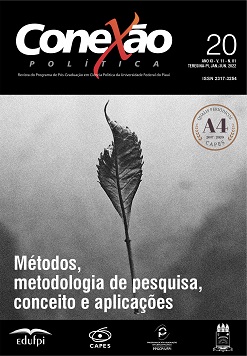ESTUDOS DE CASO PARA A CIÊNCIA POLÍTICA
DOI:
https://doi.org/10.26694/2317-3254.rcp.v11i1.5443Palavras-chave:
estudo de caso, casos cruzados, rigor metodológico, Ciência PolíticaResumo
Há muito se discute sobre estudos de caso na área de metodologia. É comum a concepção de que estudo de caso seja incapaz de produzir inferências válidas e confiáveis, bem como de testar hipóteses e de gerar conhecimento generalizável. Vale ressaltar que este artigo é crítico à histórica “guerra” entre abordagens quantitativas e qualitativas. Indo além disso, parte-se do princípio de que a escolha do método deve estar embasada no problema de pesquisa e que, portanto, a pluralidade de questões possíveis se serve da pluralidade de abordagens metodológicas. Dessa forma, argumenta-se que a visão do estudo de caso como um método fraco é simplista. Em defesa desse ponto de vista, é apresentada uma síntese não exaustiva das potencialidades, bem como das fraquezas características do estudo de caso. A introdução situa brevemente a discussão sobre o estudo de caso, a segunda seção traz definições e indica situações de pesquisa propícias à escolha dessa abordagem, a terceira volta-se ao rigor metodológico, a quarta comenta três exemplos de pesquisas em Ciência Política que utilizaram essa abordagem à luz das seções anteriores e, por fim, a quinta coloca potencialidades e limitações dos estudos de caso.




